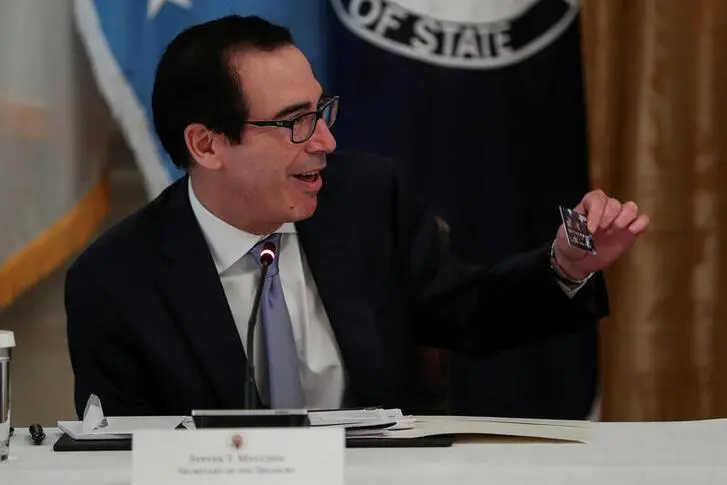PHOTO
SAN FRANCISCO - The U.S. government is holding back on its rescue of Main Street. The Federal Reserve’s bailout program for middle-market companies is still not up and running. Among the hurdles is the U.S. Treasury Department’s reluctance to risk losing money.
More than a month has passed since the Fed announced pandemic help for mid-sized firms left out of current aid programs for big companies and small businesses. Because the central bank isn’t by law allowed to lose money, Treasury pledged $75 billion in equity – a first-loss tranche, in banker-speak – which the Fed would amplify into a $600 billion fund to buy the companies' debt.
It’s a necessary lifeline. More than half of mid-cap companies expect major job losses, while access to cash is one of their top challenges, according to an April survey by the National Center for the Middle Market.
But Treasury Secretary Steven Mnuchin's desire to recoup all his department's funding, using the 2008 Troubled Asset Relief Program as a guide, is causing concerns. The U.S. government had made a $16 billion net gain on preferred stock of more than 700 banks that got TARP investments as of Jan. 31. But that was a financial crisis, arguably caused or worsened by those same banks; this emergency is different.
In the Main Street program, banks are initially expected to lend to qualifying companies. They can provide up to $25 million in new loans or refinance up to $200 million in existing debt. But their bad debt is already growing. Haggling over terms is part of what’s held up the plan, which could kick off at the end of this month.
If Treasury is explicitly willing to take a loss, the terms could be tweaked to give lenders more incentive to participate. The Fed could then buy more of the debt, principal payments could be deferred or partly forgiven, or interest rates could be lowered. After weeks of pressure, Mnuchin told senators on Tuesday he was willing to take losses. But that has yet to be reflected in the program. Meanwhile, Main Street is waiting.
CONTEXT NEWS
- The U.S. Treasury Department has disbursed $37.5 billion of the $500 billion allocated by Congress to support businesses, along with states and local governments, suffering from the effects of Covid-19, according to a congressional report released on May 18.
- The funds will be used to absorb any initial losses in a Federal Reserve special purpose vehicle for the Secondary Market Corporate Credit Facility, which on May 12 began purchasing exchange-traded funds that track corporate debt.
- U.S. Treasury Secretary Steven Mnuchin on May 19 told members of Congress that about half of the $500 billion had been allocated, but much of it hasn’t been disbursed because he is waiting for various aid programs to be established. These include the Federal Reserve's $600 billion Main Street Lending Program aimed at helping middle-market firms. During the Senate Banking Committee hearing, Mnuchin added that Treasury is willing to take losses in certain circumstances.
(Editing by Richard Beales and Amanda Gomez) ((gina.chon@thomsonreuters.com; Reuters Messaging: gina.chon.thomsonreuters.com@reuters.net))





















